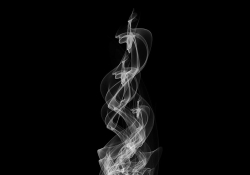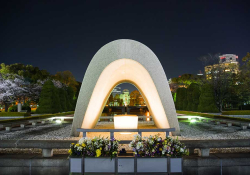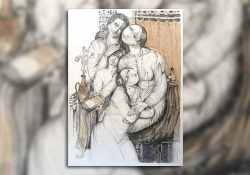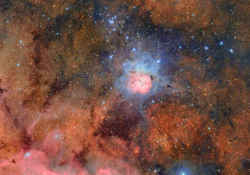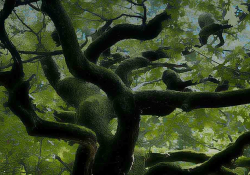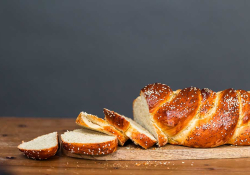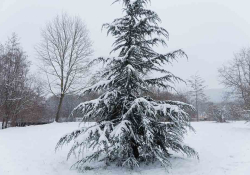Shame: A Poem from China
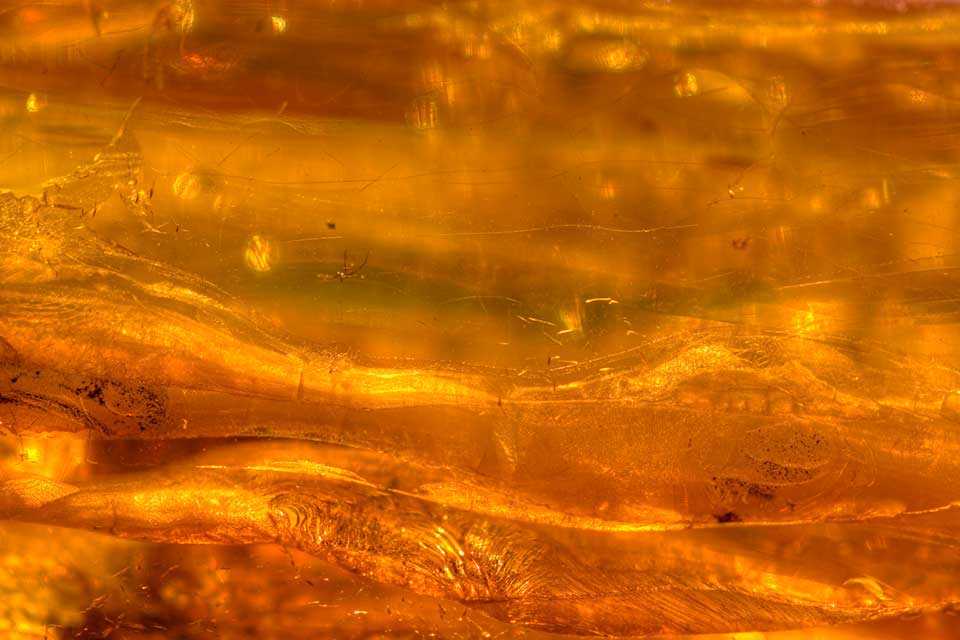
1
We maintain antiquity and elegance on paper;
inside we are full of shame. We
present heaven and hell on paper;
our self-disgust results from keeping silence for too long too deep.
In pain we forgive our fragile soul;
we weave webs on paper, paint decorative fish on the beam.
Unyielding justice, like a fish bone, is stuck in our throat.
The trees we can’t speak of, their darkness heavy and stagnant like mercury
yet erect, sharp as blade.
Time shows slightly reddish sadness and happiness; it has
a life-and-death covenant with me, hovering in the mind.
It harvests my naïveté and worldliness,
leaving incorruptible love, compassion
to bloom in black ink thicker than blood.
Carrying hate and crimes in the nothingness of white paper,
we’ve remained silent for too long, our broad forehead
covered with wrinkles. Obsessed with flesh and blood,
fear and cowardice, false screams
and terror pervade myself and this era.
The sophistication of our dwarfism puts Chinese characters to shame.
In darkness, truth is forbidden to be spoken.
Our inner confusion, what is it?
What turbulent soul should it accommodate? Oh
soul, do not speak it to me, it fills me
with resentment against fate, shut up. Fate,
after years of silence, has become traceless to me.
I am hollow, having lived with shame.
Isn’t it enough! I’m used to the masked
gestures and remarks, obliged to throw away
my youth and rage; I’m indebted to
my ancestors. They gave blood, lives, and great love
for our motherland, only to have raised me a parasite.
I inhabit the margins of the village and the city; against the
remnants of love, our silence will be an ineradicable disgrace.
2
I see clouds, a view from a higher
perspective; autumn and iron that won’t rust.
I am surrounded by people who have lost
their voice, by agony and outrage in silence,
by iron and stone of tyranny, words
and autumn, ideological re-indoctrination and
bodies terminated, armies and tanks,
insomnia on paper, fines and violence,
poverty and industrial diseases … collapsed
strengths, bloody butterflies taking refuge in the wounds of
flowers. Last year ten thousand trees are wailing in the wind;
this year, the melancholy mind like a tree convulses in the wind.
Reappearing from stones, this hard
yet changeable heart squeezes into summer,
elucidating stars and prophecies. The red
world is unpredictable; it demands blood, power
miniskirts, faces of mistresses, their voluptuous
buttocks implying some crisis, the moon and acacia
in rock and roll. You use plain and bright rhetoric
or philosophy from India to save a
suffering fatigued mind; the encyclopedia of words is
a vulgar book of political lies. Indulgent in fantasies
and sobbing, spring dwells in seclusion, winter
remains pensive, summer’s blood presses hard
on the top of our heads. You read books in the mountains,
using water of the Duliu River to interpret the scenery of death or life.
How many thoughts have I lined up like the roadside trees on the camphor road.
The past has opened its fist, God is still vivacious and optimistic.
We carry His griefs in our poems.
Because of our timidity and cowardice the debt we owe to the world
can’t be paid off or forgiven; our shame is unforgivable.
We punish our fate with self-hatred.
This futile writing is more vulnerable than I am; it’s like
a hefty stone pressing on our inner restlessness,
our vociferousness, whispering masses, bureaucrats’ looming faces.
We have to beg for food with writing, for security and sustenance,
waiting for it to burn completely our bodies and souls,
its melancholy the same year after year. We tie word-knots to record events,
recording this moment, on earth, everyone’s position,
recording these roles, joys and sorrows. If
someone still reads and recollects, inquiring in printed words
people’s well-being, then pain like a high-pressure mercury lamp
unable to light up the pedestrians and snowbanks in the dark.
3
We are used to living in a humiliating crevice,
having given up our ideals, beliefs, and innermost being.
You borrow light and snow of the Sole Mountain in winter
to identify words swimming in the dark,
following obedient common folks and schools of fish, in the repartees
of fashion or special columns, as expected,
becoming a person of disgrace and loneliness.
Wounds will scab; used to affliction, this heart
begins to let go compassion, its long endurance in silence
hardens like amber. In sealed time
I can’t see the plant that has stopped growing,
it once took root in a vast crowd of people, hidden
and growing. Ah, for common people
and the world, we still keep a secret love.
We dare not break the screen of reality
with piercing poetry; we can only use the silence of cast iron
and cynicism to indulge in the serenity of an illusory reality.
This is our shame, our doomed
fate. In this world, we can’t be
porcupines, Heavens, let’s hope we won’t become
someone’s guinea pigs. Hope and disappointment
are perfectly symmetrical; you can’t break the rule
for wanting to escape into the mountains, with restraint and indulgence
to keep an isolated distance from the world. I am still
seeking uprising in the hellish factory;
shame can never be exchanged for a peaceful life.
I keep thinking about the revolution of one person.
They are accustomed to comfortable middle-class poetry,
to metaphor, rhetoric, irony, and dramatic monologue
or the euphemism of an official’s dagger-pen, to squandering time
in coffee-shop-like words and expressions. You in the mountains
with witches as your neighbors, read what the obsolete old-timers lack—conscience
and courage to confront stark reality, you read the ignorance
of anti-intellectual young people. Exhausted winter
is reminiscent of spring in Russia. Nowadays we’ve
spent too much time in silence; we are
too ashamed to defend our past. The resentment we keep inside
is endless, like a mirror, reflecting the lowly darkness
in our mind. I am writing inferior poetry
in a sweatshop factory, or rather I’m capturing the howl
of the struggling downtrodden. It has black wings.
Their shadows pierce my eyes.
4
Who will comfort us in our loneliness and confusion?
If destined in our fate, we have innocent fragility
of our times, we have vulnerable
sensitivity. In facing power and desire, no word or expression
can remain as steadfast as before. Sunshine outside the window
lights up these pages, these words, while I am alone
sipping its warmth. Plants in front of the blinds
take back its bright light. I’m lost in the gloom of last night’s
dreams; shadows and fires hover between dreams.
Ah, my heart’s crying, ah, this mottled
paintlike mind, ah, weeping, please open
this anemic mind. With hidden pain
I watch what I love falling apart, on the machines
are crowded, fatigued souls. On the white paper
stand countless people lonely because of shame.
My time … floats …
those ribs shining in twilight, too heartbreaking.
You are in the mountains, avoiding games beyond their reach,
searching for memories of the nation in traditional Chinese characters inside
thread-bound editions.
In the deep wells of our country plum blossoms quiver, their perfume afloat in the air.
Fog permeates, darkness of disappointment accumulates within me.
Nothing is the same as before. The sky no longer blue,
is somber as the wooden fish, beating the nervous and unforeseen world.
You look for the ancestors’ small statures in those words,
courageously allowing fate to show impossible miracles—the unexpected
is often sad, can’t wait to be loved by beautiful women.
Our lives are being erased or falsified by our era.
Speckles of ignominy sparkle among the strokes of characters.
The green mountains are empty of birds, the cold outside is thick and strong.
Exhaustion has crept all over Duliu River, tides of winter
flooded. Cold ladies and warm gentlemen, I don’t know
if I’ll follow them to speak more lies.
My guilt bites like a snake, the patterns on its belly
treacherous and attractive, leaving me with disgrace, regrets, and weariness.
In our times, these words will be harassed.
Afraid to speak out, I can only disappear in the sea of people.
Translation from the Chinese
Editorial note: From 《郑小琼诗选》, 广州,花城出版社,2008 (Selected Poems by Zheng Xiaoqiong [Guangzhou: Huacheng Publishing House, 2008]), 85–91.


